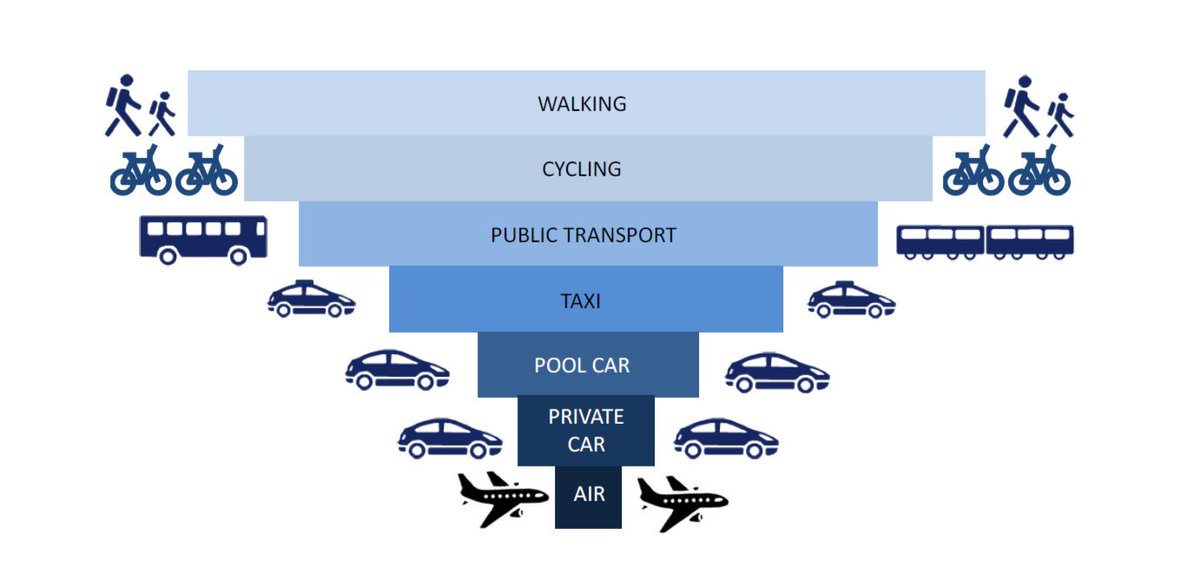I’m delighted to see the Vison in the draft National Transport Strategy (NTS). If the Strategy can deliver on these high-level outcomes, then it will be truly ground-breaking and transformative for Scotland.
However, I foresee a potentially significant barrier to achieving the scale and speed of transformation required. There is a saying: culture eats strategy for breakfast!
It is possible to write a perfect strategy, but unless culture, from decision makers to the public, and social norms are pointing in the same direction as the strategy, then its impact and success can be compromised seriously.
I’ve been working on sustainable and active transport policy for a number of years now and I’m more and more struck by the all too often divergence between policy intentions and practice on the ground.
Although investment is increasing, which is hugely welcome and there are a growing number of shining examples of great active and sustainable travel practice, policy implementation can be frustrating slow and shallow.
Quite simply, our travel culture, social norms and investment do not yet adequately match the well-crafted words set out in what are usually very good policies.
I believe the transformative change that is required is for the movement of goods and people to move as far up the transport hierarchy as possible (the subject of an earlier blog of mine).
To achieve this, I see the top priorities are to move many more of us out the private car (conventional and electric) and to choose walking, cycling and public transport instead; we must reverse the serious decline in bus patronage and reduce significantly the amount we fly for pleasure and work.

However, our culture and social norms are contrary to these priorities. The car remains king and big, fast ones are still seen as a status symbol and a positive indicator of economic progress. Road building projects are still seen as flag-ship projects, despite demand management evidence showing that they simply generate more traffic. Anything that makes private car use less attractive or more expensive to run is met with media and public (well, car driver) outcry. Bus travel is seen a second-class form of travel, trains are seen as unreliable and expensive, aviation fuel and air tickets remain VAT exempt and we’re flying more than ever for pleasure and work.
These are the social norms and they are usually social norms generated by the more well-off in society at the expense of the least well-off and the environment.
Walking, cycling and public transport may be at the top of the transport hierarchy, but in reality and in terms of social acceptance and investment, they remain at the bottom.
So, how can we change our car and flying dominated culture? As with most things in life, I don’t think there’s one silver bullet here. However, I suggest there are two main themes that need to be addressed: changing the culture of leadership and changing the culture of the public.
Regarding leadership, leaders are the custodians of the organisation’s vision and the carrier of its culture. Whilst we all have a role to champion the change the NTS is seeking to deliver, politicians and leaders of national and local government, leaders of Transport Scotland and other stakeholder organisations involved in transport decision-making and delivery have a particular opportunity and responsibility here.
They must lead and be the culture change through the valued they expound, their behaviours and their decisions. This will at times require brave leadership and making unpopular decisions.
Changing the public’s culture, or social norms, is about selling a dream. Good advertising is not about selling a product per se, it’s about selling the dream that the product can deliver, eg beauty, happiness, long-life etc. To deliver the NTS, we require high profile, sustained campaigns that sell and dream to encourage behaviour change and shift social norms.
The dream at the national level is delivering on the four critically important high-level strategic outcomes in the NTS.
The dream for the public is making walking, cycling and public transport the first and most obvious travel choice. Travelling by these modes must be easy, reliable, cheap, non-stressful, healthy, sociable and environmentally friendly.
Conversely, private cars and frequent flying must become more socially unacceptable. To bring about this mass behaviour change or social movement, all of us in leadership positions must ‘walk the talk’. We must be the change through our actions and behaviours, not just through our words.
To conclude, it’s often said that process is as important as product when it comes to strategies. I welcome the draft NTS and support most of its content. However, I’m most interested in what we now do with this ‘product’ to bring about the cultural changes necessary to ensure that we deliver the transformational change set out in the NTS’s vision and high-level outcomes.
Written by Ian Findlay CBE, Paths for All Chief Officer. Follow Ian on Twitter @i_findlay
The new National Transport Strategy for Scotland is now open for consultation. Share your views before 23 October 2019.


